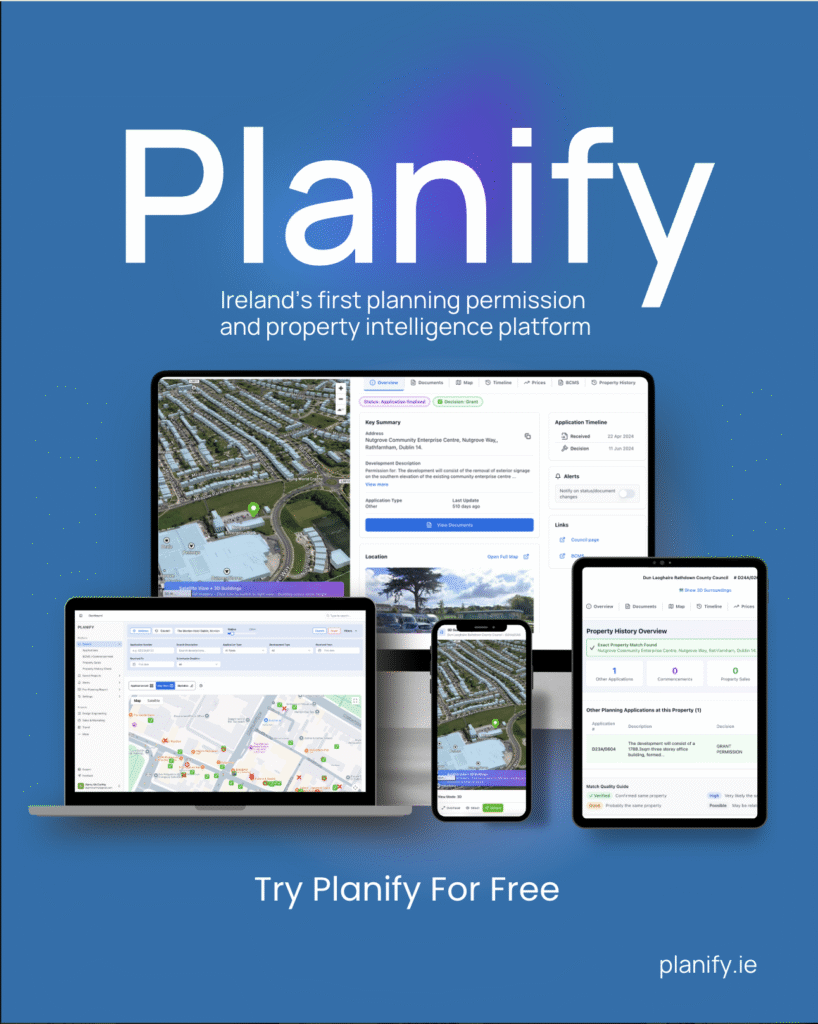Guide to Planning Enforcement in Ireland

Understanding Planning Enforcement
Planning enforcement is a critical aspect of the planning system in Ireland, ensuring that development and use of land adhere to planning permissions and regulations. This guide provides an in-depth look at planning enforcements, covering what they are, the processes involved, and how individuals can navigate these situations.
Planning enforcement is the process by which local planning authorities ensure that developments are carried out in accordance with granted planning permissions, conditions, and relevant planning laws. This includes addressing unauthorised developments, which are those carried out without the necessary planning permission or in violation of the conditions of a granted permission.
The Basis of Planning Enforcement
The foundation of planning enforcement in Ireland is laid out in the Planning and Development Act. This legislation provides local authorities with the power to investigate potential breaches of planning control and take appropriate action to remedy these situations.
Common Issues Leading to Enforcement
- Unauthorised Developments: Construction, alteration, or use of land or buildings without the required planning permission.
- Non-compliance with Planning Conditions: Failure to adhere to the conditions attached to a granted planning permission.
- Unauthorised Change of Use: Changing the use of a building or land without obtaining the necessary permission.
The Enforcement Process
- Investigation: The process typically begins with the local planning authority investigating a suspected breach of planning control. This can be initiated based on complaints from the public, observations by planning officials, or other means.
- Enforcement Notice: If a breach is identified, the authority may issue an enforcement notice to the person responsible for the breach. This notice will detail the nature of the breach, the steps required to remedy it, and the timeframe within which these steps must be taken.
- Legal Action: Failure to comply with an enforcement notice can lead to legal action, including prosecution. Penalties for non-compliance can be significant and may include fines or, in extreme cases, imprisonment.
Responding to an Enforcement Notice
- Compliance: The most straightforward response to an enforcement notice is to comply with its requirements within the specified timeframe. This may involve ceasing unauthorised use, removing unauthorised structures, or applying for retrospective planning permission.
- Appeal: If you believe the enforcement notice is unjustified, you have the right to appeal to An Bord Pleanála, the independent planning appeals board in Ireland. Appeals must be lodged within a specific period from the date the enforcement notice was issued.
- Regularisation: In some cases, it may be possible to regularise an unauthorised development by applying for retrospective planning permission. However, success is not guaranteed, and this route should be pursued with caution and, ideally, professional advice.
Preventing Enforcement Action
- Seek Planning Permission: Always apply for planning permission where required before commencing development.
- Adhere to Permissions and Conditions: Ensure that all developments are carried out in accordance with granted permissions and any attached conditions.
- Consult with Planning Authorities: If in doubt about whether a development requires permission or if it complies with planning regulations, consult with your local planning authority for guidance.
Planning enforcement plays a vital role in maintaining the integrity of the planning system, ensuring that development across Ireland proceeds in a manner that is sustainable, lawful, and in the public interest. Understanding the enforcement process, knowing how to respond to enforcement actions, and taking steps to prevent unauthorised developments are crucial for anyone involved in property development or use.




